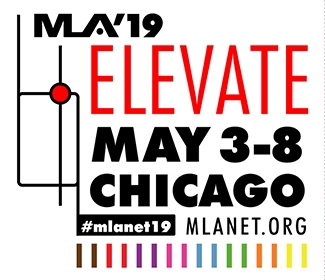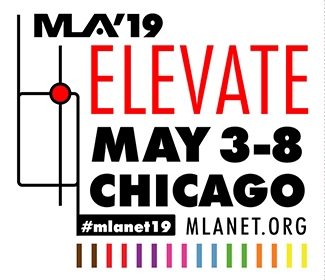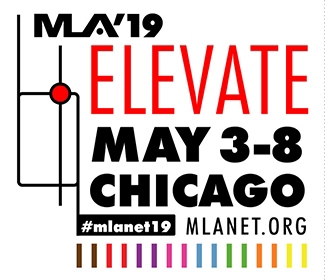 MLA ’19 ELEVATE continuing education (CE) courses in Chicago, IL will take place on Friday, May 3, and Saturday, May 4, 2019. CE courses support health sciences librarians and other information professionals in adapting to rapidly changing environments, transforming their collections and service models, and leading important new changes in education, research and librarianship.
MLA ’19 ELEVATE continuing education (CE) courses in Chicago, IL will take place on Friday, May 3, and Saturday, May 4, 2019. CE courses support health sciences librarians and other information professionals in adapting to rapidly changing environments, transforming their collections and service models, and leading important new changes in education, research and librarianship.
The following are offerings in the Information Services competency area, as described in MLA’s Competencies for Lifelong Learning and Professional Success:
A health information professional locates, evaluates, synthesizes, and delivers authoritative information in response to biomedical and health inquiries.
At the core of what we do is find information to answer biomedical and health-related questions at the point of need. We are experts in assessing information needs and delivering information in a format and means of delivery best suited to the individuals and groups making requests.
Plan to register for CE to ELEVATE your expertise in this professional competency area.
Friday, May 3
10:00 a.m.–5:00 p.m.
CE100 Advanced Searching Techniques and Advanced Strategy Design
This course covers a range of advanced searching skills and issues. You will look at the big picture of designing high-quality searches on complex topics, such as comparative effectiveness research, systematic reviews, and guideline development. You will investigate new techniques, explore new software tools, assess current best practices, discuss the value and challenges of search filters, examine structuring searches into concepts, and address the challenges of conceptual structures beyond population, intervention, comparison, outcome (PICO) for complex topics. Aimed at experienced searchers.
CE101 Fields, Filters, and Fun: Incorporating Creativity and Craft into Database Literature Searches
Got #expertsearcher problems? Learn how to approach complex biomedical database searches with creativity and fun in this interactive, full-day workshop. Through presentations, demos, hands-on activities, and discussions, you will learn how to use database and platform structures, text mining software, subject heading browsers, and other tools to improve search retrieval and efficiency, and, most importantly, how to use creative thinking in your searching while maintaining rigorous standards. Aimed at experienced searchers.
1:00 p.m.–5:00 p.m.
CE102 Health Services Research: Sources and Strategies for Effective Information Searching
Through resource demonstrations, case studies, and hands on exercises, you will learn how to find health services research (HSR) resources and you will acquire strategies for answering health care access, cost, outcomes, and policy questions. You will learn how to go beyond searching typical peer-reviewed databases to using health policy resources, including data and grey literature, and how to address the inherent complexities in information seeking for health services research analyses.
Saturday, May 4
10:00 a.m.–5:00 p.m.
CE103 Effectiveness and Efficiency in Exhaustive Searches
Learn a new, efficient, and effective method for conducting exhaustive searches! Demonstrations and exercises introduce you to the method. Practicing in a database of your choice under the guidance of an experienced information specialist helps you hone your skills. You will leave able to create complex searches checked for completeness and translated in different databases much faster than with traditional methods. Aimed at experienced searchers.
8:00 a.m.–noon
CE104 Which Review Is Right for You? Matching Questions to Review Type and Teaching the Process to Others
More and more librarians are being asked to conduct reviews for clients who are unsure what systematic reviews are. Through step-by-step guidance, discussion, and group and individual work, you will learn how to explain review types, determine if a question can be answered with a review, match question to reviews, and use your knowledge to guide others through consultations and formal lessons.
CE105 We’re Way Past Peas: Uses of Genetic Information to Understand Human Health and Guide Health Care Decision Making
Improve the quality of your service to clinicians who use genetic information in their practice and consumers who struggle to understand the health implications of their genetic information. Through hands-on exercises and presentations, you will learn genetic terminology and the basics of genomic health literacy; explore scientific, ethical, and privacy challenges in the interpretation and use of genetic information; and gain skill in using the National Center for Biotechnology Information (NCBI) MedGen portal and Genetics Home Reference to answer questions relating to genetics and health.
1:00 p.m.–5:00 p.m.
CE106 Trials without Tribulations: Identifying Clinical Trials for Systematic Reviews and Other Clinical and Research Questions
Trials registers are essential information sources for systematic reviews, health technology assessments, and other complex reviews. Trials registers are in constant development and provide thorny searching and record management challenges. After this course, you will understand the value of trials registers and learn about key trials registers and trials results registers. You will practice searching trials registers and get guidance on practical issues, such as how to download results and document and report searches.
CE107 Going for the Grey: Finding Grey Literature for Complex Reviews
Acquire practical skills in planning, executing, and reporting grey literature searches for various types of complex reviews, including systematic reviews, meta-analyses, and realist reviews. Through presentations and hands-on explorations of grey literature search sources, case-based searching exercises, problem-solving activities, and discussions, you will learn about the value of grey literature and how to use advanced search engine techniques, appraise results, and find the right grey literature for your review.
MLA CE courses are powerful and rewarding learning experiences! Of the participants who evaluated MLA ’18 courses: 94% found their course engaging and would recommend it to colleagues; the percentage who rated themselves competent or better increased from 40% to 74% after taking a course.
Watch for information on other courses to be offered in upcoming issues of the MLA News and on MLANET. Contact Debra Cavanaugh for more information.




